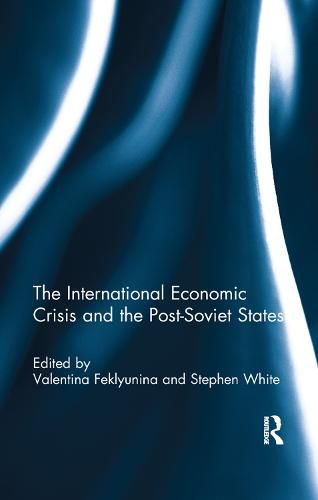Readings Newsletter
Become a Readings Member to make your shopping experience even easier.
Sign in or sign up for free!
You’re not far away from qualifying for FREE standard shipping within Australia
You’ve qualified for FREE standard shipping within Australia
The cart is loading…






At first, it seemed as if the international financial crisis that broke out in 2008 would have little effect in Russia and the other post-Soviet states. But, by the end of the year, growth was slowing, banks were reluctant to lend, share values had collapsed and unemployment was rising inexorably. The stability of the Putin leadership, it appeared, had been built on the turnaround in economic performance that it had managed to achieve over more than a decade. How would it cope with a sudden reversal? In Ukraine, living standards fell even more sharply. In Belarus, there were fewer obvious signs of economic difficulty, but it could hardly be unaffected by the performance of its major trading partners.
Drawing on a wide range of evidence, an international group of scholars address the impact of the international financial crisis in the post-Soviet states and the continuing implications of the crisis for these countries themselves and for the wider world.
This book was published as a special issue of the Journal of Communist Studies and Transition Politics, now known as East European Politics.
$9.00 standard shipping within Australia
FREE standard shipping within Australia for orders over $100.00
Express & International shipping calculated at checkout
At first, it seemed as if the international financial crisis that broke out in 2008 would have little effect in Russia and the other post-Soviet states. But, by the end of the year, growth was slowing, banks were reluctant to lend, share values had collapsed and unemployment was rising inexorably. The stability of the Putin leadership, it appeared, had been built on the turnaround in economic performance that it had managed to achieve over more than a decade. How would it cope with a sudden reversal? In Ukraine, living standards fell even more sharply. In Belarus, there were fewer obvious signs of economic difficulty, but it could hardly be unaffected by the performance of its major trading partners.
Drawing on a wide range of evidence, an international group of scholars address the impact of the international financial crisis in the post-Soviet states and the continuing implications of the crisis for these countries themselves and for the wider world.
This book was published as a special issue of the Journal of Communist Studies and Transition Politics, now known as East European Politics.